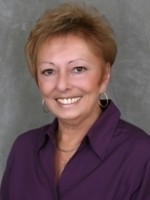Reverse Mortgage Checklist
By Liz Clinger Updated on 7/27/2017 Our reverse mortgage checklist will walk seniors through the reverse mortgage process to help them better understand how they can tap into their home equity without dealing with mortgage payments.
Our reverse mortgage checklist will walk seniors through the reverse mortgage process to help them better understand how they can tap into their home equity without dealing with mortgage payments.
Here are the required steps:
Study the reverse mortgage terms.
Before making any major financial decisions, learn everything you can about your financial options and read up on reverse mortgage information as possible and make sure you fully understand the details of how the loan works. Remember, before applying for a reverse mortgage you should analyze your budget and establish a financial plan for the future.
Visit the HUD’s helpful summary for additional information.
Meet with a qualified reverse mortgage counselor.
Reverse mortgage counseling with a HUD qualified counselor is a federally mandated step in acquiring a reverse mortgage. Reverse mortgage counseling will eliminate any confusion over the unusual guidelines of reverse mortgages.
During the meeting, your counselor will detail the advantages and disadvantages of the reverse mortgage program to help you understand the impact of your decision.
Find a reverse mortgage lender.
Each lender will offer different interest rates, closing cost arrangements, and fees, so it is critically important to evaluate a few and compare loan terms. Taking the time to get multiple quotes from different lenders could make all the difference and is highly recommended for all loan transactions.
Start the application for the reverse mortgage process.
Seniors needn’t provide any credit information, as their lender will do the research for your home and analyze any other mortgages tied to the property.
At this point in the process, make sure that your lender provides you with a good faith estimate of the closing costs and origination fees connected to the loan. Once the necessary documents are in order, your reverse mortgage application will move to the underwriting process. Following underwriting, your lender will tell you whether or not you qualify for the loan.
This shouldn’t be an issue, as the vast majority of seniors who apply for reverse mortgages qualify without any trouble unless there's a question about having enough equity in the property.
To qualify, you must meet the following reverse mortgage qualifications.
Finalize the reverse mortgage decision.
Fully understand the reverse mortgage process, regarding:
- Financing – Although seniors receive cash through a reverse mortgage, they remove equity from their home, diminishing their inheritance to any heirs; while the heirs may retain ownership of the property, they must pay for the withdrawn equity.
- Eligibility – to qualify for a reverse mortgage, seniors must be at least 62 years of age. When applying as a couple, both borrowers must satisfy the age requirement.
- Costs: While seniors can gain access to substantial funds through the program, the costs of reverse mortgages tend to exceed the gain, monetarily speaking. Also, reverse mortgages include fair interest rates. Closing costs can be high.
Be aware of both the advantages and disadvantages of reverse mortgages:
- Advantages: One of the reverse mortgage advantages is that it provides the borrower with access to funds and allows him or her to tap the accumulated equity within the property. The funds can be used for anything: medical bills, home purchase, or a vacation.
- Disadvantages: Due to the requirement that the borrower must remain living within the home, the loan may become due early in some circumstances, creating many issues for repayment and homeownership. For more information, visit our reverse mortgage disadvantages page.
I have considered all of the alternatives to a reverse mortgage, including:
- Downsizing: Though selling the home and purchasing a new one will require some effort and time, doing so can be much cheaper and less risky than a reverse mortgage.
- Home equity loan: Securing a home equity loan also can provide seniors with access to funds through equity; seniors who need the funds from a reverse mortgage should consider this loan program, as it involves less risk and costs less in general.
Understand that reverse mortgages conflict with the following government aid programs:
- Social Security Supplement
- Medicaid
Discuss your decision to secure a reverse mortgage with my heirs, who will be responsible for either:
- Selling the property: If the heir of a reverse mortgage borrower decides not to retain ownership of the property, they may sell the home, using the proceeds to pay off the reverse mortgage debt. If the home sales price exceeds the amount owed, the heir will keep this profit. If the home sales price is less than the amount owed, the heir will not be held responsible for the difference.
- Keeping the property: If a reverse mortgage heir decides to keep the home, they must acquire a new mortgage loan to pay off the reverse mortgage debt. Once paid off, the heir must continue to make mortgage payments.
Understand the terms dictating when the loan is due:
- Moving: If the borrower moves from the property or leaves for 12 months or more, the reverse mortgage loan will be due immediately. Reverse mortgage seniors should plan on remaining in the property long term.
- Borrower passes away: When a reverse mortgage borrower passes away, the loan will become due to the borrower’s heir, who may either pay it off with a standard mortgage loan or the proceeds from a home sale. If a reverse mortgage borrower passes away, their spouse (unless also a borrower on the reverse mortgage) will not be able to remain living in the home unless the debt is paid.
Recognize the potential consequences of noncompliance:
- Default: Though reverse mortgages do not require any payment, seniors who default on property taxes will be required to pay back the balance of the reverse mortgage loan.
- Unexpected illness: If a borrower suffers from an unexpected illness, they may need to relocate and the reverse mortgage would be due.
Attend the closing and receive your funds.
At the time of closing, you will sign and verify all of the necessary contracts and paperwork to officially receive the loan. At this point, you will need to pay all of the lender fees and closing costs that you may owe. Additionally, the lender will make arrangements to provide you with either the first month’s payment or the entire lump sum payment, depending on your preference. Typically, seniors will need to wait at least three days before receiving the loan funds.
Apply the money as needed.
At this stage of the process, seniors will eliminate all other mortgage debt – one of the major benefits of reverse mortgages. If you have a current mortgage on your home, funds from the reverse mortgage must be used to pay off this loan first along with any liens or judgements against the property.
Don’t worry about repayment.
While a reverse mortgage is technically still a loan, seniors will not be obliged to directly repay the loan. Even if home equity becomes completely depleted, the bank does not take ownership over the home; borrowers may continue to live there until they pass away and leave the home to heirs.
However, if borrowers decide to move into a new home, they will be required to repay the full reverse mortgage amount to the bank.
Additionally, when a borrower with a reverse mortgage passes away, their heirs will be responsible for paying back the mortgage. Typically, heirs choose to instead sell the home to gain the necessary funds to pay off the loan, while any additional equity obtained through the sale will go directly to the heirs.
Federal regulations mandate that the loan amount due can never exceed the value of the home itself, even if the property decreases in value and the borrower owes more than the home is worth. Essentially, this provides some comfort for seniors, as heirs cannot be responsible for any extraneous debt beyond the value of the home.

Didn't find the answer you wanted? Ask one of your own.

Contributing Authors
Reverse Mortgage Calculator
Step 1 & 2 of this calculator determine if you are eligible for a Reverse MortgageRelated Articles
Ask our community a question.
Searching Today's Rates...

Featured Lenders
Lisa Stepp
RBS Citizens
Clifton Park, NY







